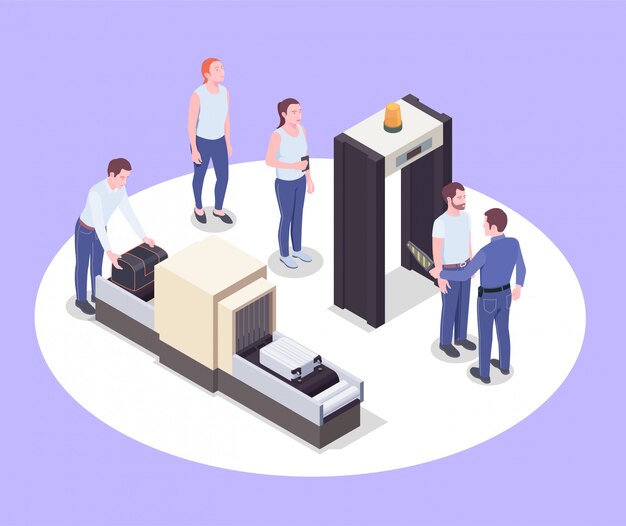Introduction
In busy cities like Islamabad and Rawalpindi, managing customer queues efficiently is a challenge that many businesses face. A well-designed Queue Management System (QMS) not only improves customer satisfaction but also optimizes business operations. In this blog, we will explore the benefits and features of QMS, its impact in Islamabad and Rawalpindi, and the future of queue management.
What Is a Queue Management System?
A Queue Management System (QMS) is a tool used to manage and organize waiting lines. It uses technology to streamline the process, making it more efficient and less stressful for both customers and employees.
Why Businesses Need a QMS
- Enhanced Customer Experience
- Customers hate waiting in long lines. A QMS can make waiting less painful by providing updates and managing the order queue efficiently.
- Increased Efficiency
- Businesses can serve more customers in less time, improving productivity.
- Data Collection and Insights
- A QMS collects valuable data on customer flow and wait times, which helps businesses optimize their services.
Key Features of a Modern Queue Management System
- Digital Displays
- Shows customers their position in line and estimated wait time.
- SMS Notifications
- Customers can receive updates on their phones, allowing them to wait elsewhere.
- Self-Service Kiosks
- Enables customers to check in and join the queue, reducing the workload on staff.
- Real-Time Monitoring
- Business managers can monitor queues and make adjustments on the go.
Benefits of a Queue Management System
A QMS brings a range of advantages that help both customers and businesses.
For Customers
- Reduced Wait Times
- Customers get served faster, which improves their overall experience.
- Transparency
- Customers can see where they are in the queue and get an idea of how long they have to wait.
- Stress-Free Waiting
- Knowing their spot is secure makes customers less anxious.
For Businesses
- Better Resource Allocation
- Staff can be deployed more effectively, focusing on customer service rather than crowd control.
- Higher Customer Retention
- Satisfied customers are more likely to return and recommend your business.
- Performance Monitoring
- Businesses can analyze data to improve service and identify peak hours.
Queue Management System in Islamabad
Islamabad, the capital city of Pakistan, has a growing need for efficient queue management. The increasing population and the rapid expansion of businesses make a QMS essential.
Why Islamabad Needs Efficient Queue Management
- High Traffic Areas
- Places like government offices, hospitals, and shopping centers experience heavy foot traffic. A QMS can make these areas more manageable.
- Customer Expectations
- People expect fast and organized service, and a QMS delivers just that.
- Impact on Productivity
- By reducing wait times and streamlining processes, a QMS helps businesses operate more efficiently.
Queue Management System in Rawalpindi
Rawalpindi, a bustling city near Islamabad, also faces challenges in managing queues. The need for effective queue management is just as critical here.
Popular Sectors Using QMS in Rawalpindi
- Healthcare Facilities
- Hospitals and clinics use QMS to manage patient flow and reduce wait times.
- Financial Institutions
- Banks rely on QMS to serve customers quickly and securely.
- Retail Outlets
- Shopping centers and large retail stores use QMS to enhance the customer shopping experience.
How Queue Management Systems Benefit Islamabad & Rawalpindi
The introduction of advanced queue management systems in both cities has been transformative. Here’s how:
Improved Public Services
- Government Offices
- A QMS makes it easier to handle large volumes of people, reducing frustration and wait times.
- Transportation Hubs
- Train and bus stations benefit from organized queues, making transit smoother for everyone.
Enhanced Business Operations
- Restaurants and Cafes
- Popular eateries use QMS to manage reservations and walk-ins effectively.
- Educational Institutions
- Schools and universities use QMS during admissions and enrollment periods to streamline processes.
The Future of Queue Management in Islamabad & Rawalpindi
As technology evolves, queue management systems are becoming smarter and more efficient.
Emerging Trends
- AI and Machine Learning
- Predictive analytics will help businesses forecast wait times and adjust resources accordingly.
- Mobile Integration
- More businesses are adopting mobile apps to let customers join queues remotely.
- Data-Driven Decisions
- Real-time data analysis will allow businesses to improve their service continually.
Conclusion
Queue Management Systems have become essential in cities like Islamabad and Rawalpindi. They improve customer experiences, increase efficiency, and help businesses thrive. As these systems continue to evolve, they will play an even more significant role in shaping the future of customer service.
FAQs
-
What is a Queue Management System?
- A system that helps manage and organize waiting lines, improving efficiency and customer satisfaction.
-
Why is a QMS important for businesses?
- It reduces wait times, enhances customer experience, and boosts operational efficiency.
-
Where is a QMS commonly used in Islamabad and Rawalpindi?
- Popular places include hospitals, banks, government offices, and retail stores.
-
How does a QMS work?
- It uses digital displays, SMS notifications, and self-service kiosks to streamline the queuing process.
-
What are the latest trends in queue management?
- AI integration, mobile apps for remote queuing, and real-time data analytics are the latest advancements.
